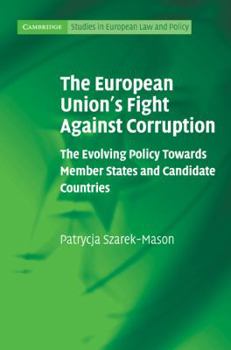The European Union's Fight Against Corruption
(Part of the Cambridge Studies in European Law and Policy Series)
Select Format
Select Condition 
Book Overview
The fight against corruption emerged as one of the most significant issues during the 2004 enlargement of the EU and gained even more importance with the accession of Romania and Bulgaria in 2007. In order to prepare candidate countries for membership, the EU found it necessary to create new institutions and mechanisms to address corruption. Patrycja Szarek-Mason traces the development of the EU anti-corruption framework, showing how recent enlargements transformed EU policy and highlighting inequities between the treatment of candidate countries and existing Member States. The experience gained during the 2004 enlargement led to a more robust anti-corruption stance during the accession of Bulgaria and Romania and will have implications for future enlargements of the EU. However, the framework can still be strengthened to address corruption adequately and promote higher standards among Member States, especially through greater use of 'soft law' in the form of mutually agreed, non-legally binding policy recommendations.
Format:Hardcover
Language:English
ISBN:0521113571
ISBN13:9780521113571
Release Date:April 2010
Publisher:Cambridge University Press
Length:318 Pages
Weight:1.35 lbs.
Dimensions:0.8" x 6.1" x 9.0"
Related Subjects
LawCustomer Reviews
0 rating





